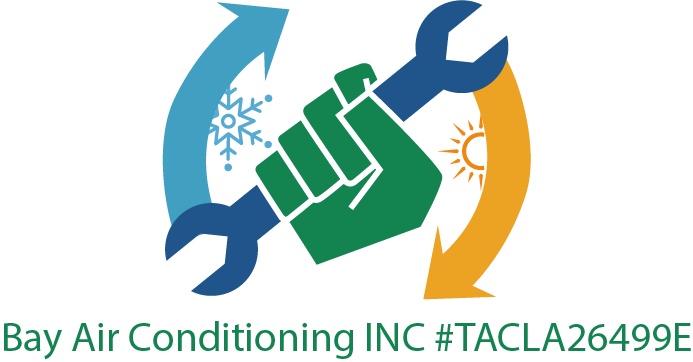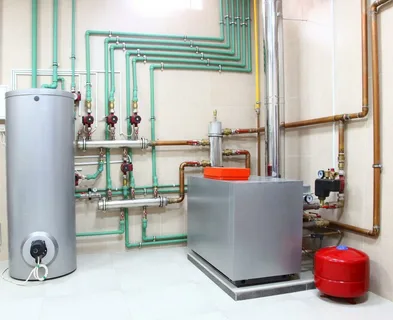How Do You Know When Your Heating System Needs Service?
Your home’s heating system is essential for maintaining a comfortable and safe environment, especially during the colder months. Like all mechanical systems, it requires regular maintenance to ensure that it operates efficiently and safely. However, many homeowners are unsure of when their heating system needs professional service. While some issues are obvious, others may be more subtle. Understanding the signs that indicate your heating system may need servicing can help you avoid costly repairs, increase its lifespan, and ensure your home stays warm and safe.
In this article, we’ll explore the key signs that your heating system needs service and why addressing these issues promptly is important for both your comfort and your wallet.
Poor or Inconsistent Heating
If you notice that your heating system is not warming your home as efficiently as it used to, or if certain areas of the house are colder than others, it could be a sign that the system needs servicing. Several issues can cause poor or inconsistent heating, such as clogged air filters, leaky ductwork, or thermostat issues. If you notice uneven heating, start by checking the air filters and replacing them if necessary. If the problem persists, contact a professional to inspect the system, including the thermostat and ductwork, for any other underlying issues.
Strange Noises
Your heating system should operate relatively quietly. If you hear unusual sounds, such as grinding, popping, rattling, or whistling, it could indicate a problem that needs attention. These noises can have various causes, such as a malfunctioning blower motor, debris in the system, clogged filters, or loose parts. If you hear strange noises, it’s important to call a technician to diagnose and repair the issue. Ignoring noises can lead to more significant damage to your heating system, resulting in higher repair costs down the line.
Increased Energy Bills
While energy costs can fluctuate seasonally, an unexpected rise in heating bills may be a sign that your heating system is no longer operating as efficiently as it should. Several factors can cause increased energy usage, including dirty filters, malfunctioning components, or an aging system. If your energy bills have spiked unexpectedly, begin by checking the air filters and replacing them if needed. If the issue persists, have a professional HVAC technician inspect your system to determine if there are any underlying mechanical issues.
Yellow or Flickering Pilot Light
For homes with a gas-powered heating system, the pilot light plays a critical role in ignition. A steady blue flame is the sign of a properly functioning pilot light. If the flame is yellow or flickering, it could indicate an issue, such as a clogged pilot tube, gas flow issues, or incomplete combustion, which can lead to the production of carbon monoxide—a dangerous gas. If you notice a yellow or flickering pilot light, contact a heating professional immediately to address the issue and ensure the safety of your home.
Short Cycling
Short cycling is when your heating system turns on and off repeatedly, failing to complete a full heating cycle. This problem can be caused by thermostat issues, dirty filters, or overheating. Short cycling should not be ignored, as it can lead to wear and tear on your heating system. Start by replacing the air filter and ensuring that the thermostat is properly calibrated. If the problem continues, call a technician to inspect the system for further issues.
Unpleasant Odors
If your heating system begins to emit strange or unpleasant odors, this could be a sign of several potential issues. A burning smell could indicate dust buildup on the heating elements, while a musty odor may suggest mold or mildew in your ductwork or furnace. A rotten egg smell is a common sign of a gas leak, which requires immediate attention. If you notice any unusual smells, it’s important to address them promptly. If you detect a gas odor or mold-like smell, shut off your heating system and contact a professional immediately.
Age of the Heating System
Like any appliance, heating systems have a limited lifespan. On average, furnaces last between 15 to 20 years, while heat pumps typically last around 10 to 15 years. If your heating system is approaching or has surpassed this age, it may be time for a service or even a replacement. Older systems are more prone to breakdowns, and they may not be as energy-efficient as newer models. If your heating system is old and experiencing frequent issues, it may be more cost-effective to replace it rather than continuing to repair it.
Conclusion
Knowing when your heating system needs service can save you money and prevent larger issues from arising. If you notice poor heating, strange noises, increased energy bills, or other unusual signs, it’s essential to address these problems promptly. Regular maintenance not only extends the life of your heating system but also ensures that it runs efficiently and safely. By staying proactive and scheduling routine inspections, you can keep your home warm and comfortable throughout the winter months. If in doubt, always contact a professional HVAC technician to diagnose and resolve any heating issues.
FAQS
1. What are the common signs that my heating system needs service?
Common signs that your heating system needs service include poor or inconsistent heating, strange noises (grinding, popping, or whistling), increased energy bills, a yellow or flickering pilot light, and unpleasant odors such as burning smells or musty air.
2. Why is my heating system making strange noises?
Strange noises like grinding, rattling, or whistling can be caused by various issues, including a malfunctioning blower motor, a dirty filter, or loose components. These sounds usually indicate that your heating system requires a professional inspection to diagnose and resolve the problem.
3. What should I do if my heating system is not providing consistent heat?
If your heating system is producing uneven heat, start by checking the air filters and replacing them if needed. Other possible causes include a faulty thermostat, blocked vents, or issues with the ductwork. If the problem persists, contact a professional to inspect the system for deeper issues.
4. How can I tell if my heating system is becoming less efficient?
If you notice a sudden increase in your heating bills without a corresponding change in your heating habits, your system might be losing efficiency. Regular maintenance, such as cleaning filters and inspecting components, can help prevent inefficiency. If energy consumption is still high, a professional technician should inspect your system.
5. What does a yellow or flickering pilot light mean?
A yellow or flickering pilot light could indicate an incomplete combustion process, a clogged pilot tube, or a gas flow issue. This is a serious concern as it can lead to the production of carbon monoxide. If you notice this issue, turn off the gas supply and call a technician immediately for safety.

